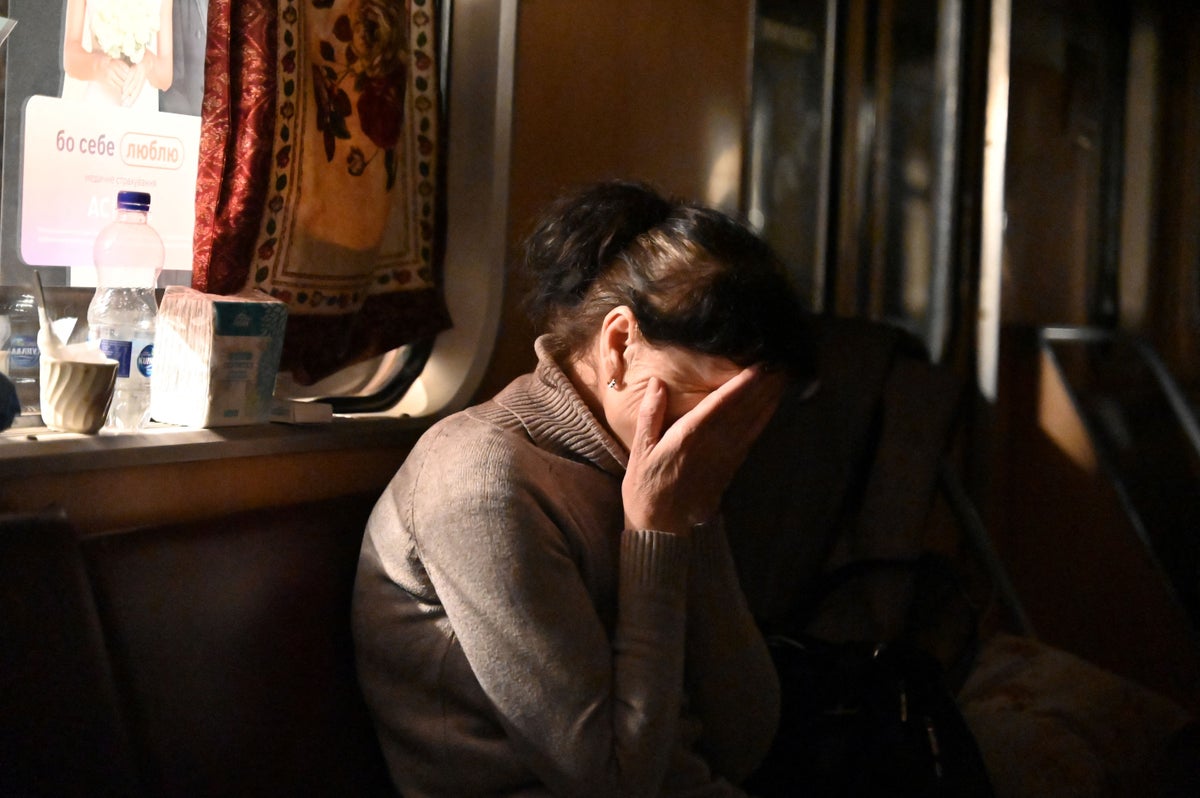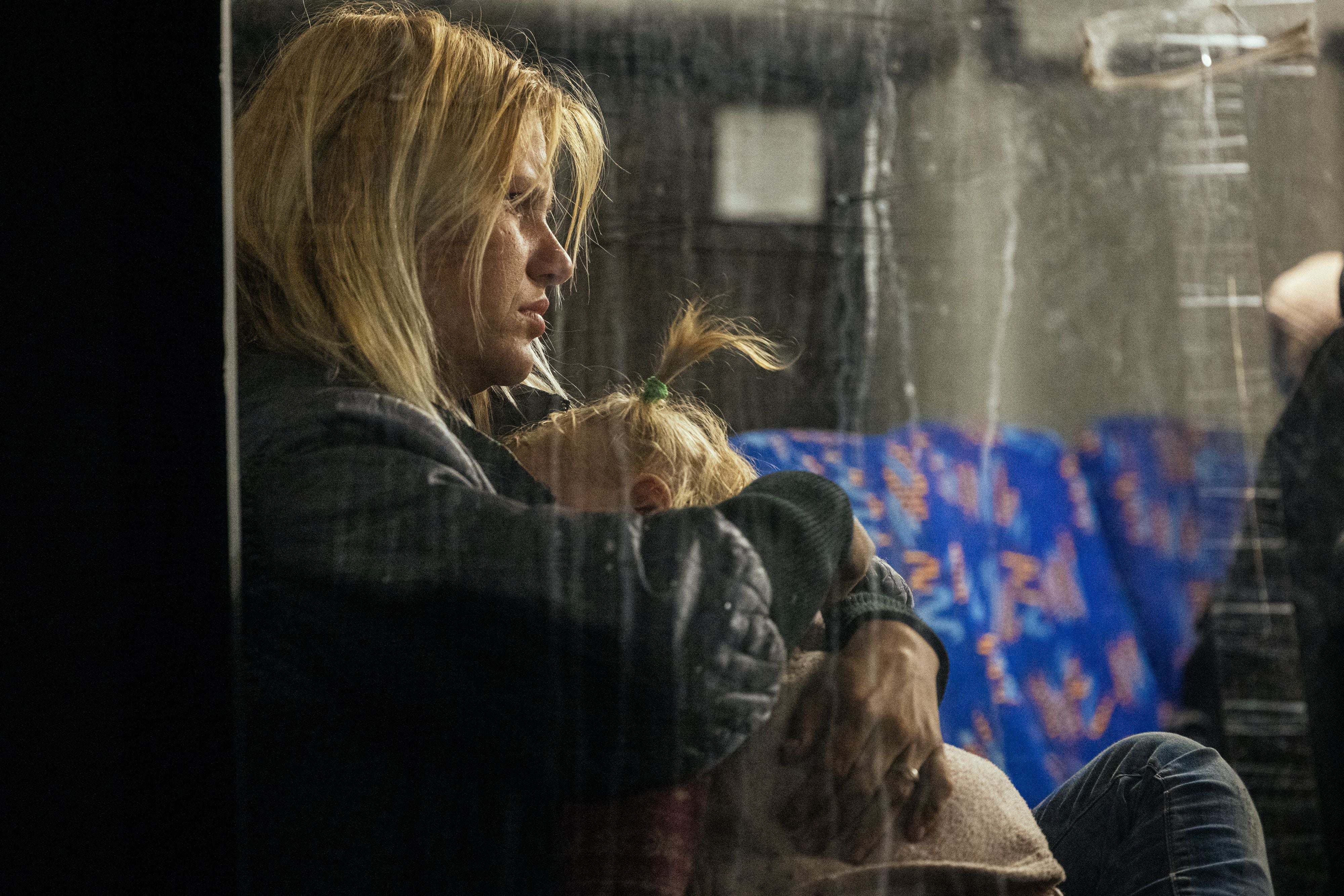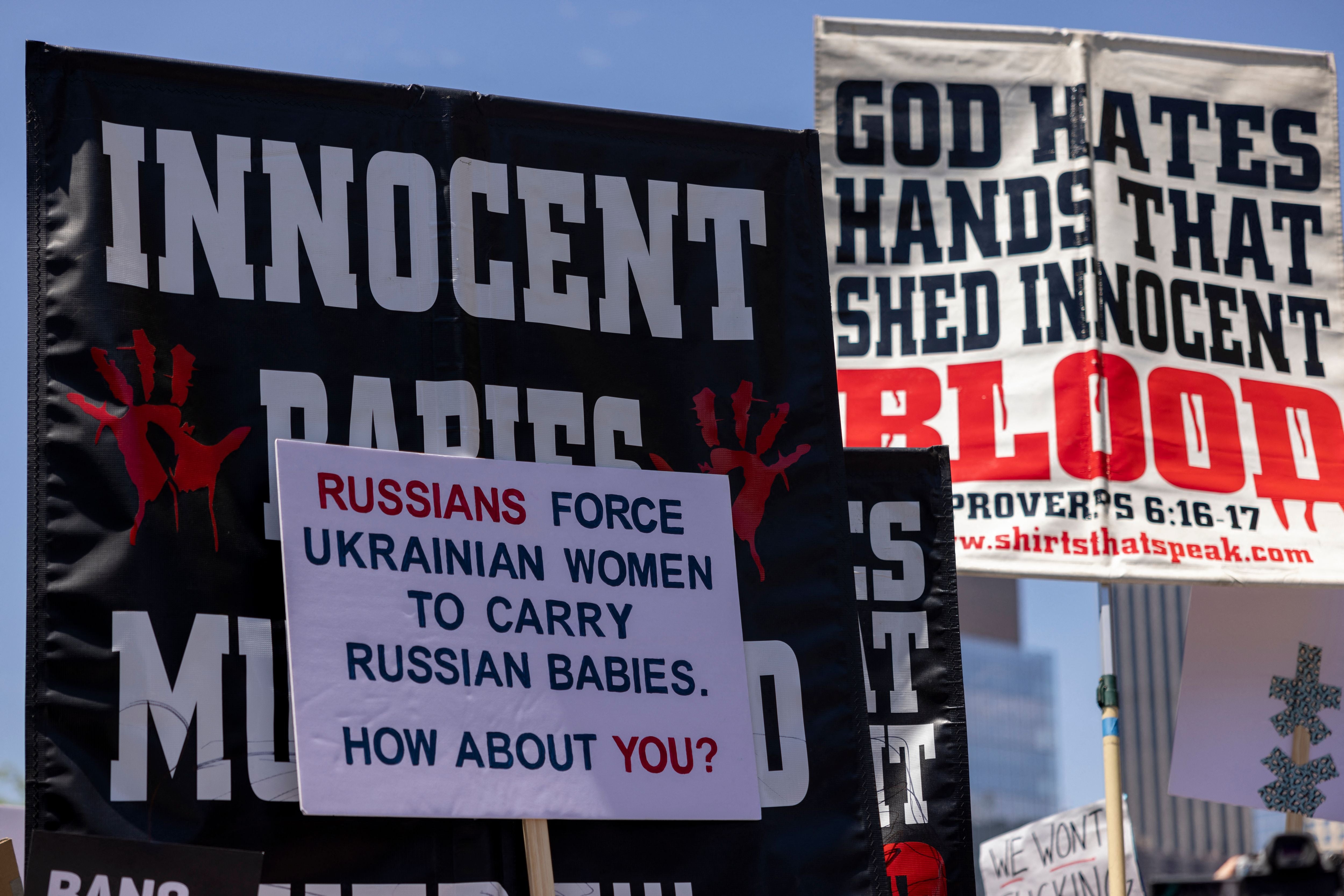
When Natalia* was escaping the drunk Russian soldiers who had raped her for several hours, she clutched her four-year-old son’s hands and walked past her husband’s corpse in the pitch-black night.
She told her son they had to run very fast because just hours earlier, the Russian soldiers — who terrorised her and shot her husband down in the family’s yard before raping her — had threatened to show the toddler “her scattered brains” if she did not undress.
The invasion had entered its fourth day when this happened in Kyiv.
Almost two weeks later, another Russian soldier went rogue in Kharkiv and forced a local woman, Olga*, to give him oral sex before he raped her. He threatened to kill the 31-year-old woman’s daughter if she did not agree.
“The soldier raped the woman several times. He also slashed her face with a knife and cut strands of hair. The Russian beat Olga with a book and repeatedly slapped her face,” the Ukrainian war crimes directory reads.
In April, three Russian soldiers looted another Ukrainian woman’s house where she was living with her mother. After raping her for more than a week, one of them shot dead her mother when she refused to leave her house.
These are just three of many such cases of war crimes Ukraine has recorded.
In the course of the Russian invasion of Ukraine – raging for 100 days now – the troops sent by Moscow have committed alleged war crimes such as execution, indiscriminate killings and the looting of civilian property, and they have been accused of marking the war on women’s bodies by raping them, at gunpoint in many cases.

Ukraine’s former ombudsman for human rights, Liudmyla Denisova, has said it is impossible to ascertain the exact number of rapes that have happened on Ukrainian territory since the invasion began on 24 February.
“As the situation evolves and when we free Ukrainian cities and sites, we see some elements of war crimes there - so of course, there’s more to go,” Oksana Zolotareva, director of the International Law Department at the Ukrainian ministry of foreign affairs, tells The Independent.
Zolotareva adds: “There are parts of Ukraine that are still under occupation and who do not have access to help – so unfortunately there will be more and more war crimes and we will have to investigate them.”
According to Ukraine’s website tracking Russian war crimes, these acts include “excessive brutality in wartime, when a military deliberately attacks peaceful civilians and civilian infrastructure, kills women and children, and targets humanitarian missions”.
All these criminal acts have no military purpose, it underlines.
“More evidence is emerging every day from women who escaped or were liberated from the occupied territories and told how the Russian occupiers raped them,” the wesbite notes in its section tracking rapes. “Russian soldiers raped these women at night. During the day. In front of their children. After the Russians had murdered the women’s husbands.
"Not all cases of rape can be seen. But they must be heard."
Experts tracking war crimes say that the weaponisation of rape doesn’t happen accidentally, or in isolated cases – rather, it is a well-known tool used to devastate the most vulnerable section of the society under attack – its women and children, though also men in some cases – who have lost everything and only want to save their lives.
“With rape, the culprit violates the victim’s sense of dignity. The concept of dignity constitutes the very essence of each human being. It is not by accident that the right to dignity became entrenched in the first article of the Grundgezetz, the German Constitution, after the Holocaust and the Nazi atrocities,” explains Dr Solon Soloman, lecturer in the division of Public and International Law at Brunel University London.
Rapes can also be a form of revenge crime by soldiers who feel in some way aggrieved, he argues, noting that “it can be committed with no prior planning and renders satisfaction to the culprit”.
“By humiliating the victim, apart from any sexual satisfaction the culprit gets the satisfaction that he has won [a victory] over the victim,” Dr Solomon tells The Independent.
This coincides with reports since the start of the war of ill-equipped and demoralised Russian soldiers who were low on food, fuel, resources and hope to sustain the fight within days of landing on Ukrainian soil.
Despite Moscow’s initial confidence, plans to capture Kyiv within days failed after meeting strong resistance from the Ukrainian army and civilians.
“This acquires another dimension in poorly planned operations where victory cannot be achieved on the battlefield. The soldiers draw satisfaction from the fact that they may have been defeated, but they equally leave behind wretched people, whose lives become destroyed psychologically and physically after the rape incidents,” Dr Solomon said.
The Ukrainian authorities, who have wasted no time conducting trials Russian war criminals even while the conflict is still going on, have said they will bring accountability and justice to such crimes even as the International Criminal Court (ICC) works to compile these cases too.
“We understand that ICC is a complementary jurisdiction, so we will continue to do our homework, and to investigate these crimes by ourselves and carry out prosecutions at home,” Zolotareva says.

She adds that Ukraine will not “wait for years for the criminal investigation and joint investigation with other countries to come up with concrete results”.
“Because we need to have this level of accountability and people who have committed these war crimes in Ukraine should understand that they will be held accountable - this will be an example that everything will be brought to justice,” she tells The Independent.
Lawyers tracking the reports of sexual violence have commended Ukraine’s efforts to investigate these crimes.
“From a legal perspective, it is important to gather evidence as soon as possible and start the prosecution proceedings as soon as one can. The clues leading to the crime are fresh and easier to document, ensuring speedy justice,” says Kathleen Hallisey, a lawyer at Hugh James working with survivors of sexual violence.
This also shows other survivors of sexual violence that something is being done about it, and that they too should come forward, she tells The Independent.
“But above all, we need a global response to rape being used as a weapon of war in the same way we’ve seen a global response to Russia invading Ukraine,” she says.
* names changed to protect identities of victims





.jpg?w=600)

